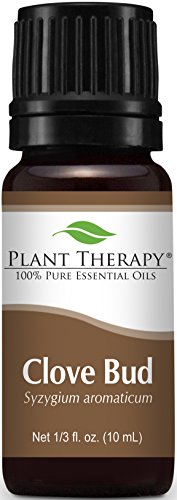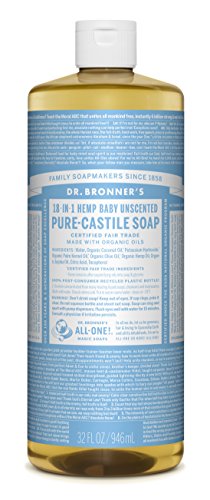Top 10 Antibacterial Essential Oils
Potent Antibacterial Essential Oils that Help Kill Bacteria to Protect You from Infections!
Today, we are going to take a look at the top 10 antibacterial essential oils and how to use them to keep infections at bay.
Yes, essential oils do much more than make your home smell good. They have healing properties that can help support your health naturally.

These bacteria killing essential oils can be used to help protect you from infection and disease causing bacteria.
This is good to know, especially in these days of antibiotic overuse, which has led to most of the disease causing bacteria to become resistant to antibiotics.
Not to mention, the nasty side effects of antibiotics – they kill off the good flora in your gut, leading to more health problems such as yeast infections.
Truth is, you need the good bacteria in your system to help combat the bad bacteria. The good bacteria also aid digestion and help to keep your digestive tract healthy.
Unfortunately, antibiotics tend to kill both the good and the bad bugs!
Remember the antibacterial soaps and hand sanitizers we are told to use to keep germs away? Turned out they are NOT good either.
This is because they also cause bacteria overkill and leads to more drug resistant bacteria (superbugs).
So, I suggest that you ditch those chemical laden commercial antibacterial soaps and hand sanitizers because they actually do more harm than good.
10 Best Antibacterial Essential Oils
#1. Thyme
Not only do I love the fresh herbal aroma with soft woody undertones of thyme, but I also love the fact that it has strong antiseptic and antibacterial properties that effectively combat bacteria and other microbes that cause infections and diseases.
In a study that investigated the antimicrobial effect of thyme essential oil against clinical multi drug resistant strains of bacteria such as Staphylococcus, Enterococcus, Escherichia, and Pseudomonas genus, thyme EO was found to strongly inhibit the growth of these strains of bacteria.
#2. Eucalyptus
Eucalyptus has a sharp penetrating medicinal aroma that penetrates your senses. It contains antibacterial properties that help to clear infections especially respiratory system infections.
Eucalyptus also helps to clear mucus and congestion, thereby opening up the airways and making it easier to breathe.
Research shows that eucalyptus can be used effectively as a natural antibiotic for several infections and diseases because of its antimicrobial activity against gram negative bacteria (E. coli) and gram positive bacteria (S. aureus).
#3. Lemon
Lemon is not only one of the best antibacterial essential oils, but it is also one of my favorites. Its sharp, bright and zesty aroma is quite uplifting and refreshing!
Lemon has antiseptic and antibacterial properties that have made it an ideal essential oil for disinfecting your home and fighting infections.
It also does a great job of boosting your immune system, making your body strong enough to fight off infections.
#4. Oregano
Oregano is antiseptic, antiviral and antibacterial, which is why it is on this list of great antibacterial essential oils.
It contains carvacrol, which has been found to have broad spectrum activity against viruses, bacteria, fungi and other drug resistant micro-organisms.
In a study involving patients with different clinical conditions, researchers found that oregano oil was effective against strains of both Escherichia coli and Pseudomonas aeruginosa.
And the researchers concluded that oregano EO can be used as an alternative for preventing and healing drug-resistant bacterial infections.
#5. Bergamot
Bergamot (a hybrid between bitter orange and lemon) is another citrus essential oil with potent antibacterial activity.
In fact, research shows that bergamot has both antibacterial and antifungal properties that combat Campylobacter jejuni, Escherichia coli O157, Listeria monocytogenes, Bacillus cereus, and Staphylococcus aureus and dermatophytes.
Plant Therapy Bergamot Essential Oil. 100% Pure, Undiluted, Therapeutic Grade. 10 ml (1/3 oz).
#6. Peppermint
Peppermint has a fresh minty aroma that is so refreshing. It is well known for its “icy-hot” cooling sensation that helps to relieve inflammation and boost circulation.
Peppermint’s antibacterial and antimicrobial properties make it an ideal ingredient to use in your natural mouthwash. It kills the microbes that cause bad breath and tooth decay.
Add 2-4 drops of peppermint oil (diluted in 1 teaspoon of coconut oil) and ¼ teaspoon of sea salt to a cup of distilled water and you have your natural mouthwash that freshens your breath without any harmful chemical.
Store in a glass container; shake well to dissipate the oil before each use!
#7. Lavender
One of the most versatile essential oils, lavender blends well with virtually all the other essential oils. And it has an amazing and endearing aroma too – the reason why a lot of essential oil users love it!
Lavender’s potent antimicrobial activity is due to its high content of active phenolic compounds such as linalool and linalyl acetate.
Aside from helping to keep bacteria and infections at bay, lavender can also be helpful for respiratory support, sinus congestion, stress relief, insomnia, and pain relief.
#8. Clove
Clove contains eugenol, which is a compound responsible for its medicinal benefits, especially for oral health.
I actually use it for oil pulling (add 1-2 drops clove oil to 1 tbs coconut oil). And my teeth and gums are happier for it. In fact, the eugenol in clove has been found to kill the bacteria that cause tooth decay and gum disease.
You can learn how to use clove for toothache and gum disease here!
Clove oil is also great for eliminating acne; this is because of its ability to effectively kill off a bacteria called Staphylococcus aureus (the bacteria that has been linked to acne).
Additionally, clove also has antifungal properties that make it effective for fighting fungal infections such as Candida.
Plant Therapy Clove Bud Essential Oil. 100% Pure, Undiluted, Therapeutic Grade. 10 ml (1/3 oz).
#9. Lemongrass
Lemongrass contains citral and limonene, which kill and inhibit the growth of bacteria and fungi.
So, not only does lemongrass help to prevent bacterial infections, but it can also help fight fungal infections such as ringworm and athlete’s foot disease.
Lemongrass also helps to strengthen the immune system, which is vital for fighting off infections and diseases.
And if you are looking for a good natural deodorizer and air freshener, you can’t go wrong with lemongrass.
#10. Tea Tree Oil
Tea tree is another potent broad spectrum essential oil. It is antiseptic, antifungal, antiviral and antibacterial.
Tea tree oil has been found to be effective for a lot of health conditions including MRSA, boils, cold sore, bad breath, respiratory tract infections, acne and psoriasis.
It also works amazingly well as natural deodorant, mold killer and insect repellant.

How to Use Antibacterial Essential Oils
There are several ways to use bacteria killing essential oils and the following are just a few of the methods:
- Diffusion – You can diffuse the oils using a diffuser, which disperses the oil into the atmosphere to kill the bacteria in the environment. Inhaling the diffused oil also helps to kill the bacteria inside your body
- Steam Inhalation – Add a few drops of the oil into a bowl of hot water and inhale. This works great for infections of the respiratory system.
- Add to Skin Cream – Add a couple drops of EO to your skin cream for skin conditions such as acne.
- Mouthwash – Use the oil to make natural mouthwash as mentioned above.
- Trashcan – Add a few drops of clove or tea tree oil to your trashcan to kill bacteria as well as reduce odor.
- Room Spray – Make room spray with any of the antibacterial essential oils.
- Natural Antibacterial Soap/Hand Sanitizer – Add 12 drops of tea tree and 8 drops of lavender (diluted in 1 tbs of sweet almond oil) to 1/2 cup of unscented Castile soap mixed with 1/4 cup of water.
Dr. Bronner’s Pure-Castile Liquid Soap – Baby Unscented, 32oz. Viva Naturals Sweet Almond Oil 16 fl oz, 100% Pure and Hexane Free.
Viva Naturals Sweet Almond Oil 16 fl oz, 100% Pure and Hexane Free.
Safety First When Using Essential Oils
If you have never used a certain essential oil it is important to do a skin patch test prior to topically using! See my sections on topical use and other essential oil safety concerns:
- 8 Essential Oil Dangers and Risks
- How to Dilute Essential Oils for Topical Use
- Essential Oils that are Safe for Kids
- Essential Oils to Use During Pregnancy

These statements have not been evaluated by the Food and Drug Administration. This article is for educational and informational purposes only and does not intend to diagnose or treat any disease. It is always recommended that you seek the advise of your private medical doctor.














Comments
I really like this as a reference. Thank you!